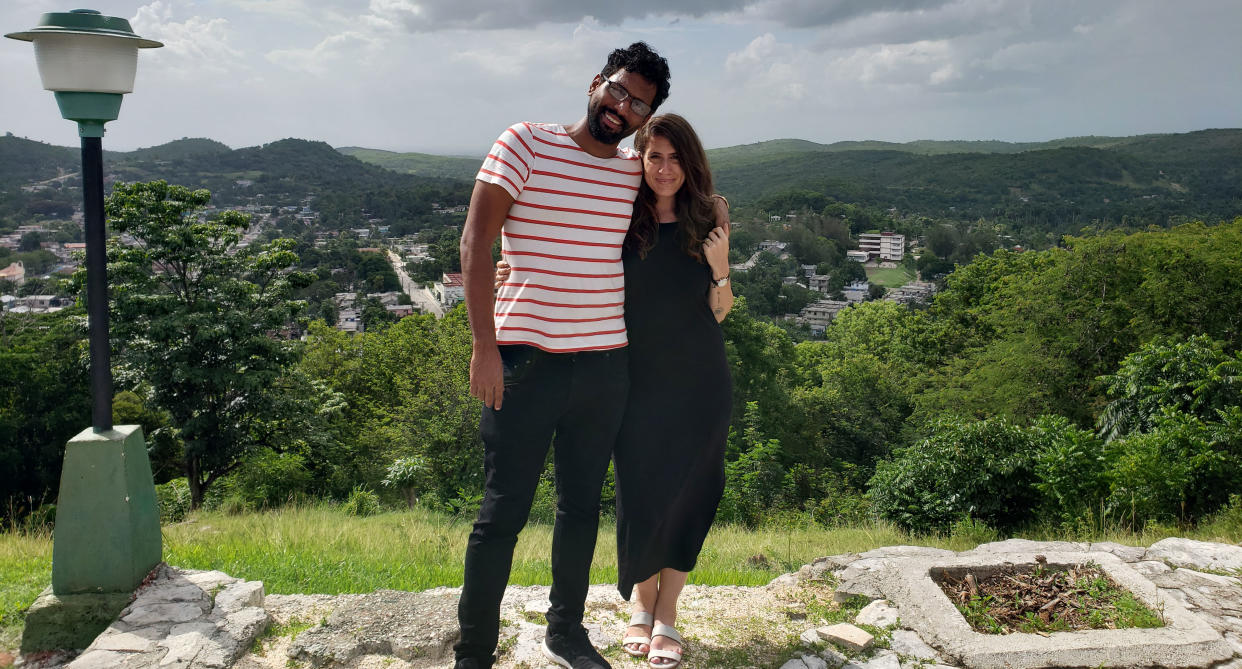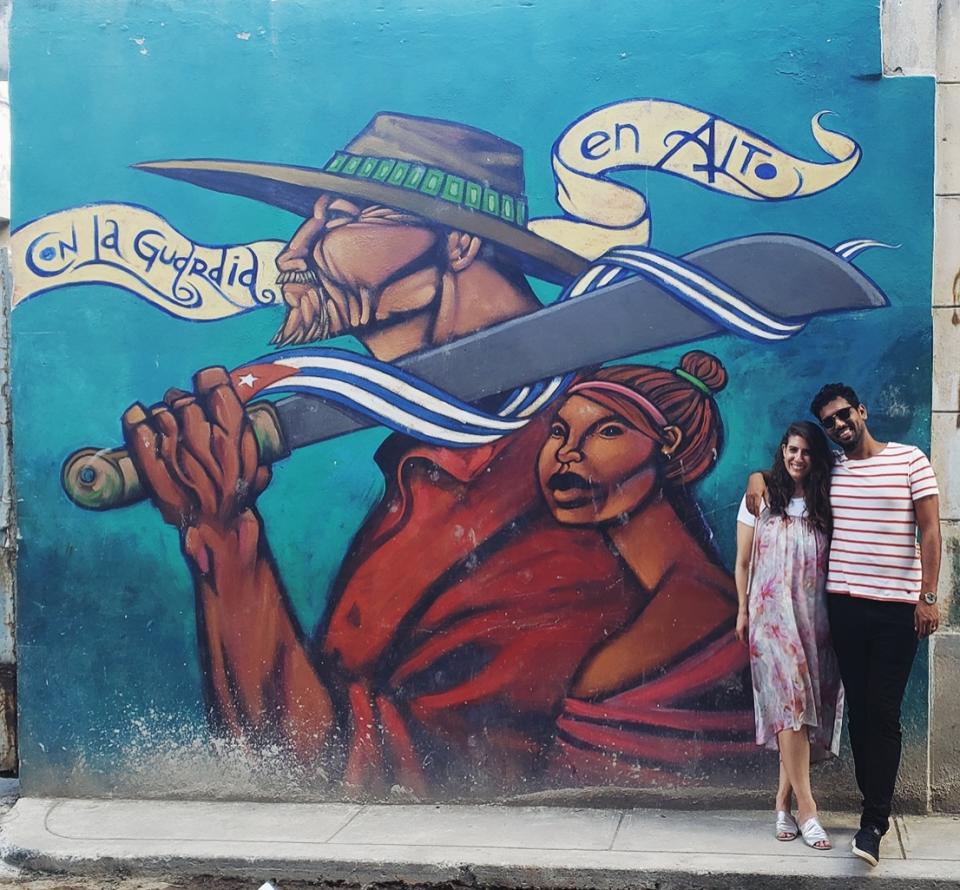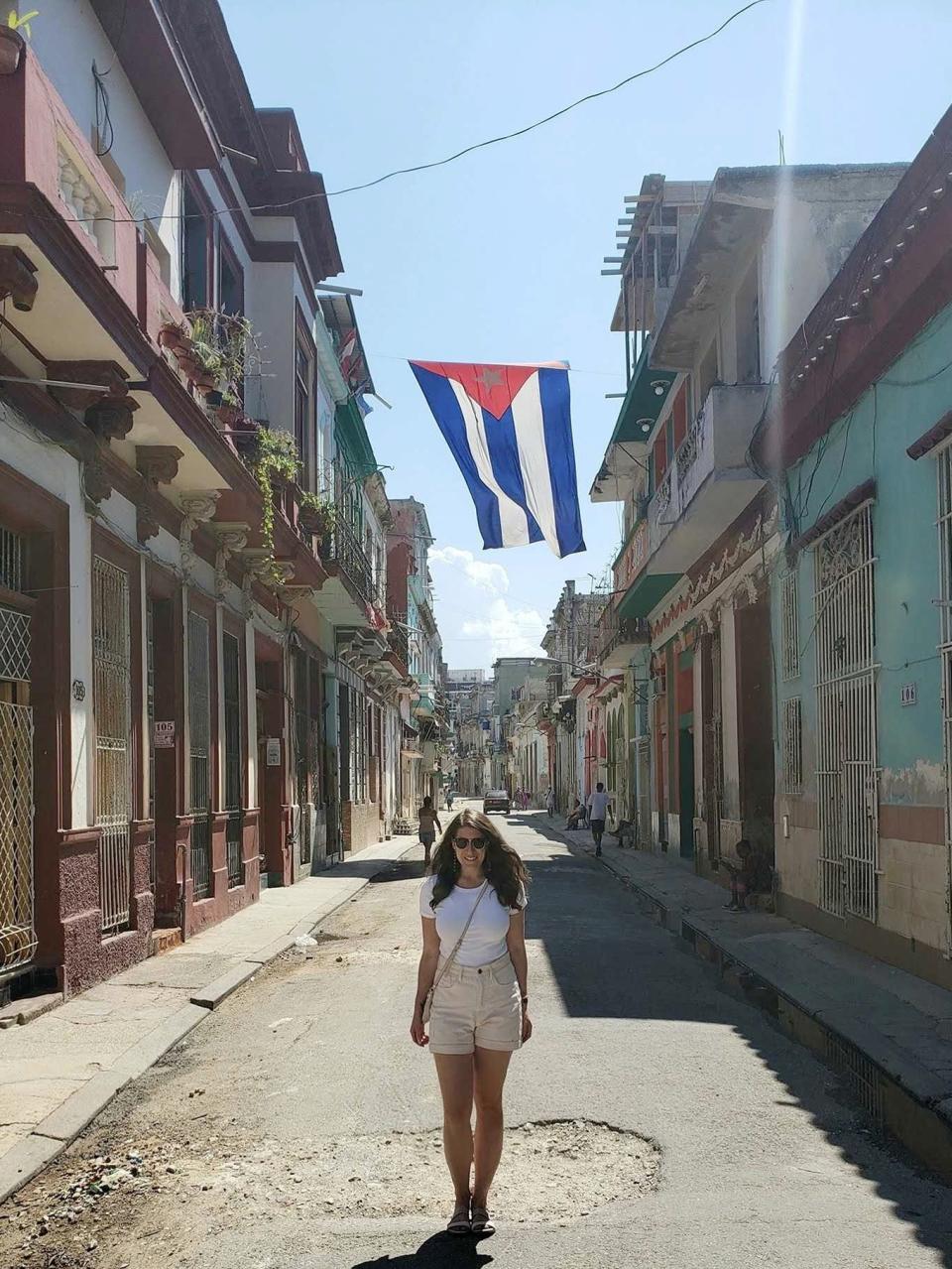'We count down the days, hours, minutes': Canadian newlywed's struggle to obtain visa for Cuban husband

Growing up, I always looked forward to the month of December. It was never a “White Christmas” for my family, but rather a couple weeks spent down south visiting my grandparents in Miami.
This annual family gathering in the Sunshine State rouses many fond memories, but one, in particular, is especially meaningful today. A Cuban restaurant called “Padrino’s” never failed to make our dining roster, so much so that I didn’t need to look at the menu to recall my order (even with a 12-month hiatus). The food was nothing fancy, but it was tried-and-true, and you could practically feel the love mixed in with the rice and beans. The restaurant attracted large crowds during the holidays, and while it was almost certain you would have to wait for a table, this never deterred my family.

My fondness for Padrino’s aside, I knew very little, if anything, about the Cuban people and their culture. Who, then, might anticipate that I would eventually find myself in Havana many years later walking down the aisle, saying “I do” to a Cubano who would be the one to educate me on the uniqueness of Cuban life, a life I would eventually become privy to from the inside-out.
In October 2016, I met the person who would become my partner in life’s many crazy adventures. An avid traveler, I was keen on using a website that helps those with the travel bug navigate new places through local people and insights. I could not have foreseen meeting my husband, Fidel, through this channel, but meet we did. Common interests and a similar humour bonded us and, in August 2018, we wed in front of our dearest friends and family. It was a magical wedding, and somewhat of a jumping-off point for the many more cross-cultural moments to come.

The following months were a whirlwind. In October 2018, Yahoo did a story on our marriage, but, rather than focus on who was in Havana to help us celebrate our union, the article spotlighted two of the most important people in my life who were unable to fly to Cuba. Because of Canada’s notoriously strict visa regulations for Cubans visitors to Canada (few Cubans have been granted this “privilege”, and Fidel, despite being a model citizen, had not been one of them), we had no choice but to marry in Havana. My grandmother’s failing health made it so that she could no longer travel. I made a promise to my grandparents, the same grandparents I spent so many seasons with in Miami, that, upon my return to Toronto, I would put on my wedding dress and we would do our own special photoshoot. I told my grandmother I couldn’t wait for her to meet Fidel and that we would celebrate what I was certain would be a very special moment, but, six months later, at the age of 89, she passed away… never having met my husband in person.
ALSO SEE: Jeremy Piven says he's 'collateral damage' in #MeToo movement: 'I took one for the team'
In November 2018, after months of assembling our sponsorship application for Fidel’s permanent residency (PR) in Canada, we submitted our application and the (approximately) 12-month waiting period commenced.

In the interim, Fidel hadn’t been thrilled with the idea of us spending all the months between our wedding and his eventual move to Toronto apart. He proposed that I relocate to Havana temporarily, so we wouldn’t be separated, and so that I could better acquaint myself with the community and culture he had spent the past 31 years cultivating. Though I had spent the better part of my 20s living abroad (and in several developing countries, no less), I was hesitant to move to Cuba, a country that felt like a time warp, one where you could feel the US embargo, and the reality of communism, encroaching on every aspect of day-to-day life.
ALSO SEE: 'Hip hop community doesn't claim you': Lil Nas X hits back at homophobic comments
I wouldn’t be moving to Havana’s posh Miramar or Playa neighbourhoods, where the majority of expats (diplomats, international school teachers and business people) call “home”. No, I would be moving into the thick of local Cuban life: Central Havana. Furthermore, I’d be leaving my independence (and, in my mind, my “adulthood”) behind in Toronto, where I live on my own in a one-bedroom apartment, and into a full house with Fidel, his parents and his grandmother. Multiple generations residing together under one roof is the Cuban way, after all.

Still, when I left my cozy career for a new professional opportunity that I subsequently found myself unhappy in, I started to rethink my initial “no” response and, instead, I started to see it as once-in-a-lifetime opportunity that would bring my husband and I, along with his tight-knit family, closer together. Also, I’ve never met a challenge I didn’t like, so my “no” eventually turned into an “okay, let’s do this!” and, in December 2018, I moved to Havana, where I’ve been based for the past several months.
ALSO SEE: 'I just didn't think it was possible': Alanis Morissette, 45, reveals struggle to conceive
The trials and tribulations of a foreigner’s life in Cuba have been many, for myself at least, but the Cuban people are some of the kindest and most generous you would ever be fortunate enough to meet, and my husband and his family are no exception. I knew I married someone special, but perhaps I didn’t know how special until I was fully on his “turf”, and I came to see just how patient and compassionate of a person he truly is. I have no doubt that Cuba had a hand in making him into the man he is today and, for that, I am grateful to this country.

This is why, on May 8th, 2019, when the Government of Canada made the announcement that it was shuttering its visa processing services at the Canadian Embassy in Havana, thus bringing our application – and many others – to a standstill, I wasn’t prepared to sit by idly. Instead, Fidel, a talented graphic designer and videographer, and I got to work producing a video that highlighted some of the stories of those impacted – both Canadians and Cubans – by this announcement. We were aware that the embassy had partially closed due to the mysterious (still yet-to-be-diagnosed) “Havana Syndrome” that had impacted several diplomats and their families, and that had consequently brought a $28 million lawsuit against the Canadian government. The video was intended to bring humanity to the issue and offer recommendations on how to remedy the situation, given Cuba’s unique set of circumstances, the fact that many applications were already well into their processing when the change was announced and implemented retroactively, in addition to our current government claiming to prioritize its commitment to family reunification.
Within a month of its publishing, the video garnered a considerable amount of encouraging press coverage, was seen and shared by government officials, and had amassed over 3,000 views. Still, with the coverage came some negative (and sometimes anti-immigrant) comments from my fellow Canadians who have evidently never been separated from a loved one or had a visa denied for no other reason than the country name written on the front of their passport. I hope it is something that these individuals never have to encounter, but I think compassion for those of us embroiled in a situation we neither asked for – nor could have prepared for – is warranted.
ALSO SEE: 'You don't owe the world a bikini': Canadian blogger praised for empowering Instagram post
Canada has always been welcomed by Cuba, demonstrated by the over one million Canadians who have been visiting the island annually for the past several years, but the embassy closure was like a slap in the face to Cubans, and Canadians directly connected to them. While it is not impossible for Cubans to visit Canada these days, the new regulations mean that Cubans will now be required to travel to a third country as part of their visa application process. Interestingly, this action by Canada follows on the heels of an identical one taken by the Trump administration in the United States. With the average official salary in Cuba hovering around the $40 CDN/month mark, the decision by the Canadian government has effectively closed the door to Cubans, and it has made it so that, when I leave Havana shortly to return to Toronto, I will board my flight not necessarily knowing when I may expect to reunite with my husband on the other side of the pond.

In the eyes of our friends and family, Fidel and I are like any other young couple, ready to build a life together that we can be proud of. I think back to the days of the family gatherings of my youth and into adulthood, and I wait, eagerly, to have my husband become a part of those memories. The many video conversations Fidel has had with my 93-year-old grandfather have sufficed, but I long for the day when they will meet face-to-face, and my grandfather will share stories of the 70+ years of love he shared with my grandmother. Fidel and I hope for that same kind of love. I have never become so aware of time and how precious it is, as we count down the days, hours, minutes and seconds until we will see “approved” on Fidel’s PR application and I can, once again, readily exclaim, “OKAY, LET’S DO THIS!”
Let us know what you think by commenting below and tweeting @YahooStyleCA!Follow us on Twitter and Instagram.


